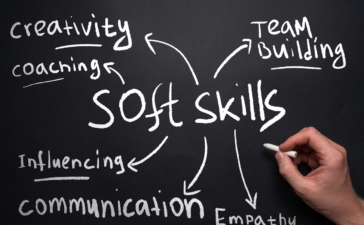The human resource department of an organization has the resources that are most important to an organization and can never be earned the way you earn money. This department deals with the welfare of employees, which is really crucial as building a successful company can never turn into a reality.
So, it means this department has to be perfect in what it does, right? But how? The answer to this question is these seven HR practices which make an HR department take the company’s success to the next level.
1. Ensuring Employee Job Security
To begin with, we have employment security, which is so important to take care of that it holds the number one place. But is it a best practice to implement? Human resources is all about caring about the organization’s or its employees’ human capital. One of the most important factors that an employee considers is job security. Because their lives are uncertain, they need to ensure that they have a source of earnings that can help them manage their daily lives and the unexpected ups and downs.
Hence, that is why you should implement an HR practice that provides security to the employees in the organization. Utilizing tools like HRMS software in Kerala can help streamline these practices. Moreover, it’s also beneficial for the organization, as job security ensures the employee works to his/her full potential without thinking about anything else.
2. Strategic Selection: Hiring the Best Talent
Hiring is a process in any organization from the day of its establishment. It is a process that is so crucial to be done accurately because it affects the whole organization. So, you must implement selective Hiring as an important HR practice.
First, what does it take to hire the right employee? The answer is screening, multiple interviews and even assessment-based screening. Now, why does the right employee matter? Because you will be able to get the work done right and, more importantly, save the recurring costs of hiring again in case of an incompatible hire.
3. Creating Self-Driven and Efficient Teams
The HR department also holds accountable for the performance of an employee as many factors affect the performance of an employee, one of which is teamwork. While teamwork is mostly considered a synchronized approach to reach the goal, this might not be the whole truth.
It is also important for a team to be diverse regarding thoughts and problem-solving to achieve the goal with various approaches. The right way mostly comes from a mix of multiple paths. Hence, the HR department should be able to create a team where everyone supports each other while carrying different thoughts to reach the same goal.
4. Implementing Flexible Work Policies
There’s no exact time when being strict became a part of professionalism, but it’s undoubtedly causing problems. It directly affects the employee’s will to work because they start thinking they are in jail. So, an important HR practice is to draw a precise line between discipline and unnecessary strictness.
The HR department can do so by defining clear project timelines but being flexible with how the employee will reach there. So, if an employee chooses to rest between work hours, allow it as far as the timeline is being followed.
5. Supporting Employees Throughout Their Journey
When an employee needs to convey something, the department responsible for listening to an employee is the HR department. So, it is an important HR practice to be present for the employee from the very beginning of their journey to the end. Be it the onboarding process or retirement, you should stand for them at every point in their journey. It builds employee trust in their employer and the organization, which is crucial for running a successful business.
6. Fair and Merit-Based Compensation
Compensation for the employee’s hard work goes beyond just monetary reward. It also serves as a critical motivation to keep working honestly for the organization. So, disbursing performance-based compensation without biases allows the employees to live their jobs and work better daily. Moreover, fair and performance-based compensation is also important for healthy organizational competition. It encourages other employees to perform better if they are not performing well yet.
7. Ongoing Skill Development and Training
Assuming that once you onboard an employee, it’s the end of their learning curve is a mistake many organizations make. But you shouldn’t do that. The world is growing and changing rapidly, and so is the industry you belong to. That’s why your employees should keep learning the new things and trends coming in the industry. It’s crucial because you can’t keep changing your employees and teams for a swift change in the work ethics in your industry. So, investing in retraining employees, learning and skill development is better.
Conclusion
In conclusion, implementing these seven HR best practices will enhance employee satisfaction and drive your company’s success. From providing job security to fostering continuous learning, these practices ensure a supportive and productive work environment. By prioritizing your employees’ welfare and development, you’ll build a stronger, more resilient organization.





